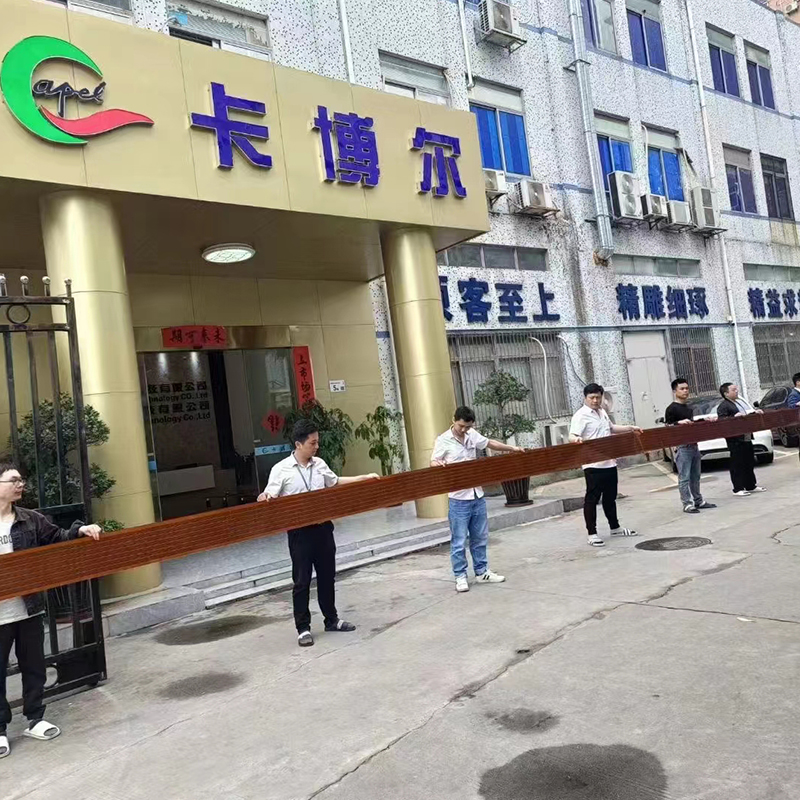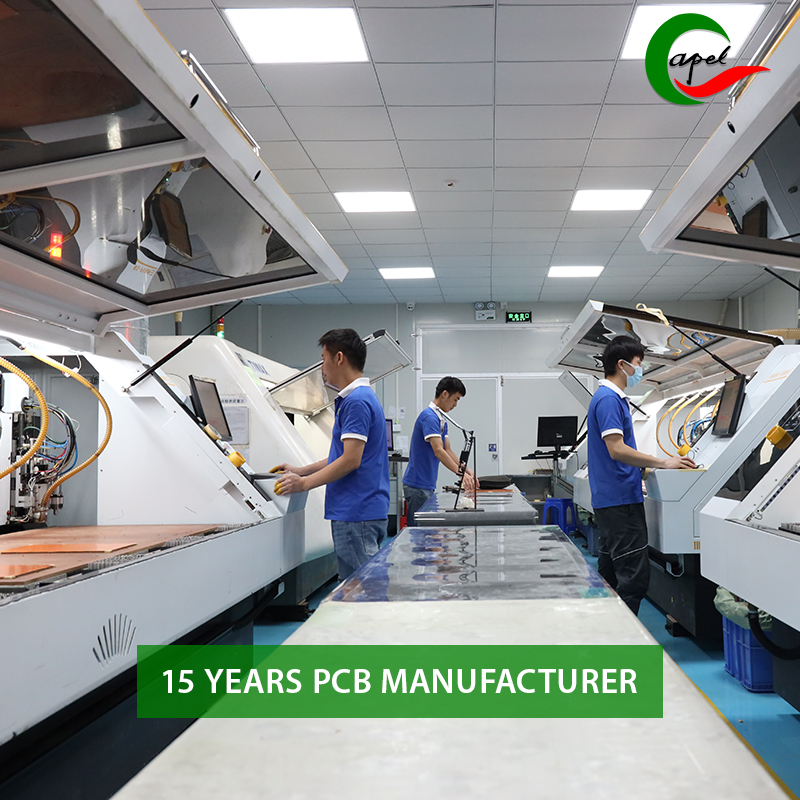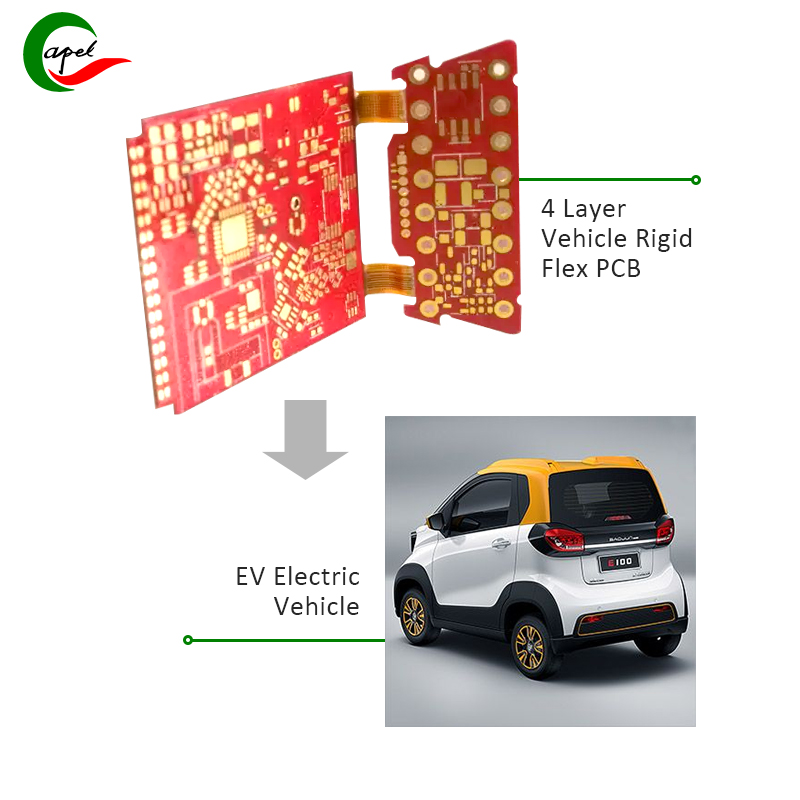Explore the critical role of automotive flexible PCB manufacturers in modern vehicle design, their advantages over rigid PCBs, and the importance of experienced manufacturing. Learn about design, manufacturing processes, practical applications and collaborative projects in this comprehensive analysis.
Introduce
Automotive design has evolved significantly over the years, with a focus on innovative technologies that improve vehicle performance, safety and functionality. Automotive flexible PCB is one of the indispensable and important components in modern automobile design. These flexible printed circuit boards revolutionize the way electronic systems are integrated into vehicles, offering numerous advantages over traditional rigid PCBs. In this comprehensive analysis, we explore the critical role automotive flexible PCBs play in contemporary vehicle design, the unique features that set them apart, and how experienced manufacturing and prototyping can improve their performance and reliability.
Advantages of using flexible PCBs in automotive applications
The numerous advantages offered by flexible PCBs are driving their adoption in automotive applications. Unlike rigid PCBs, flexible PCBs can bend and twist to conform to the shape and size requirements of vehicle components, allowing for space savings and design flexibility. Additionally, they are lighter, reducing overall weight and helping improve fuel efficiency. Their ability to withstand vibration and shock makes them highly reliable in automotive environments, providing exceptional durability and longevity. Additionally, the flexibility of these PCBs reduces the need for complex wiring harnesses and connectors, simplifying assembly and maintenance. Overall, the advantages of using flexible PCBs in automotive applications include increased design flexibility, reduced weight, improved reliability and simplified assembly, making them an integral part of modern automotive designs.
What is automotive flexible pcb?
Automotive flexible PCBs are specialized printed circuit boards designed to withstand challenging environmental conditions and mechanical stresses within vehicles, such as temperature changes, shock and sustained vibration. Unlike traditional rigid PCBs, flexible PCBs are manufactured using flexible substrate materials that allow them to bend and conform to the shape of the components they are integrated into. This unique characteristic makes it ideal for seamless integration of electronic systems into limited and irregular spaces within automotive assemblies. Design considerations for automotive flexible PCBs are critical and require a deep understanding of specific application requirements, environmental factors and mechanical stress levels. High-quality manufacturing and prototyping are critical for automotive flexible PCBs as they play a key role in ensuring the reliability and performance of vehicle electronic systems.
Automotive flexible PCB design and manufacturing process by Capel manufacturer
The design and manufacturing process of automotive flexible PCBs requires a meticulous approach to ensure optimal performance and reliability in automotive applications. It typically involves several key stages, starting with comprehensive design considerations that take into account the specific environmental and mechanical stresses the PCB will encounter within the vehicle. Selecting the appropriate substrate materials, conductive traces and protective coatings is critical to achieving the required flexibility and durability. Prototyping is a critical stage that allows designs to be tested and refined before series production, which emphasizes the need to work with experienced manufacturers. Material selection, testing and compliance with strict industry standards are important factors in the manufacturing stage to ensure that automotive flexible PCBs meet the stringent requirements of the automotive industry.
Case Study: Practical Application of Automotive Flexible PCB
Real-life case studies provide valuable insights into the practical application of automotive flexible PCBs and their impact on vehicle performance and functionality. In recent automotive projects, leading vehicle manufacturers have attempted to integrate complex electronic control systems into compact and irregularly shaped spaces in new vehicle models. The project presented specific challenges, including the need for a highly reliable and space-saving solution that could withstand vehicle operating conditions. By utilizing automotive flexible PCBs, manufacturers are able to overcome these challenges and achieve seamless integration of electronic control systems. The PCB’s flexibility facilitates efficient use of space, while its ability to withstand mechanical stress ensures long-term reliability. The successful implementation of automotive flexible PCBs in this case study demonstrates their efficacy in meeting the demanding requirements of modern automotive design, reinforcing their position as key components in automotive electronics.
Automobile flexible pcb manufacturer manufacturing cooperation project
Working with an experienced automotive flexible PCB manufacturer can bring many benefits, especially in specialized automotive applications. Partnering with a manufacturer with extensive expertise in automotive flexible PCBs ensures a custom solution optimized for the specific challenges of vehicle integration. The advantage of this collaboration is comprehensive support at every stage, from initial design consultation to prototyping and series production. Past collaborative projects prove the success story of working with experienced manufacturers in the automotive sector. Notably, the seamless integration of electronic systems across various vehicle models and the reliability of automotive flexible PCBs highlight the tangible impact such partnerships can have in driving automotive electronics innovation and performance.
Automotive Flexible PCB Manufacturer-16 Years of Manufacturing Expertise
In summary
The key role of automotive flexible PCBs in modern vehicle design is undeniable, providing countless benefits that have reshaped the integration of electronic systems in vehicles. Case studies and collaborative projects demonstrate that the use of automotive flexible PCBs has proven to help overcome design challenges, improve reliability and optimize in-car space utilization. The importance of working with experienced automotive flexible PCB manufacturers cannot be overstated, as their expertise and custom solutions play a vital role in ensuring the successful integration of electronic systems into the vehicle. As the automotive industry continues to develop, the use of flexible PCBs is becoming increasingly important for innovating automotive electronics and achieving superior performance. Readers are encouraged to consider the benefits of utilizing flexible PCBs in automotive design and prioritize working with experienced manufacturers to realize the full potential of this transformative technology.
With 16 years of expertise in automotive flexible PCB prototyping and manufacturing, Capel continues to lead advancements in automotive electronics, providing innovative solutions that impact the trajectory of modern automotive design. With a strong commitment to excellence and a proven track record of successful collaborations, Capel is a trusted partner for automotive manufacturers looking to leverage the full potential of flexible PCB technology in their vehicles.
Post time: Mar-04-2024
Back









